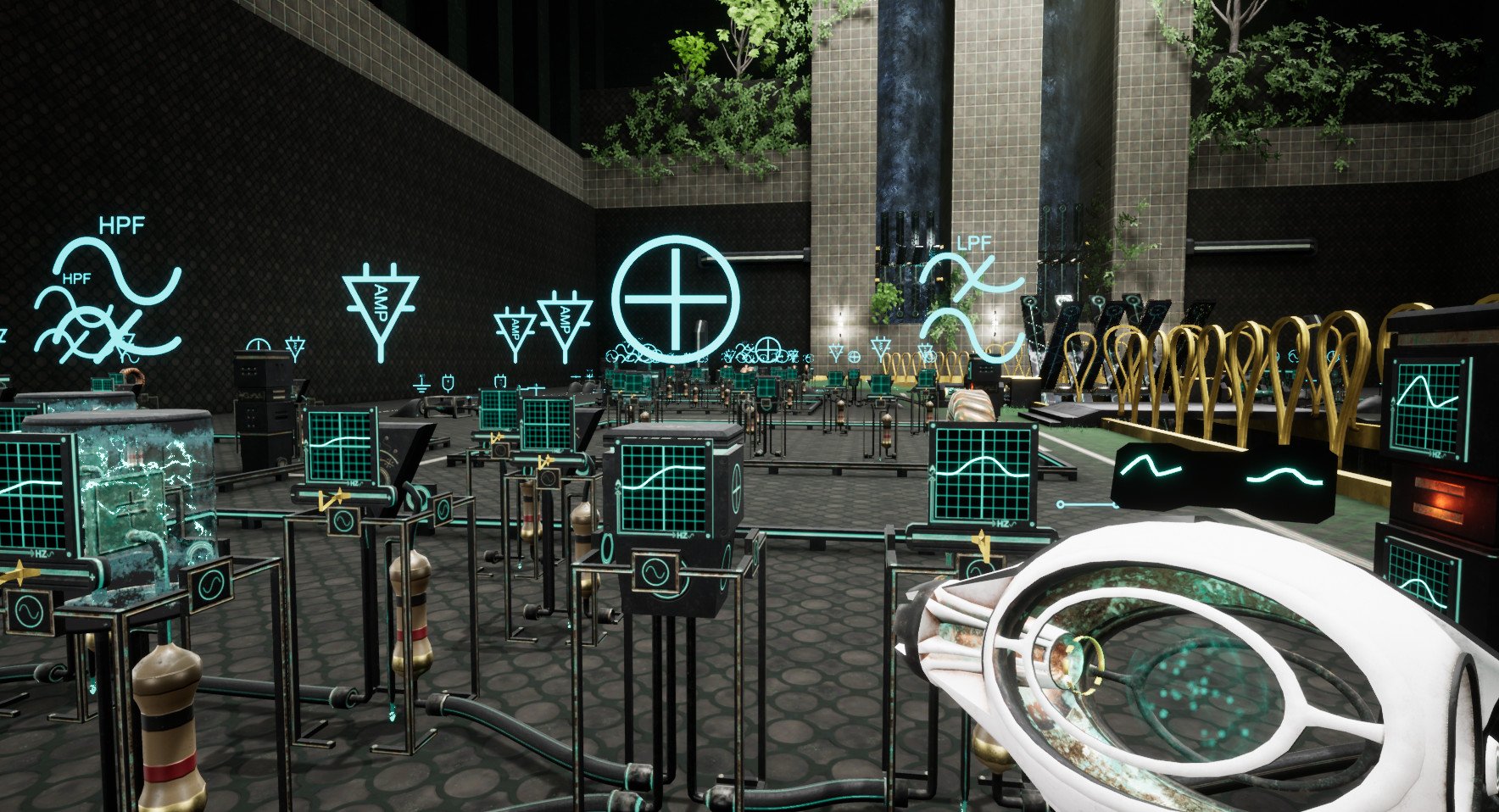
I’m not one for patience in games. I love being told what to do and how to do it. I love to see results of some kind and fun in my experimentation with a new world, new game mechanics, and more. However, I can love puzzle games that give me the tools and a world that is fun to explore and rewards learning and effort in trying to learn new mechanics. The Long Gate is easily one of the most complex puzzle games I’ve tried in a long time and while it can sometimes have some fantastic and interesting results and reward patience, the journey of learning how to solve puzzles is a mild slog at best.
Let’s talk about the world players are placed in. Clearly, this is a game made by an independent developer who has limited resources. This can be fascinating and lead to a creative aesthetic. It is a bold choice for The Long Gate to create such an elaborate, large-scale environment with a mystery. Unfortunately, graphics, visual design, and the world in general are more distracting and difficult to understand than beautiful, eye-catching and / or useful. I think a more simplistic approach to visual design focusing on puzzle mechanics could have helped the game look a lot more refined. I appreciate the risk and effort in making something bigger out of a puzzle game, but it didn’t work in favor of the gameplay.
As for the actual gameplay and puzzle system, the game is basically a series of increasingly difficult structures involving levels of circuits, moving electricity through various systems, turning on lights, opening doors and activating elevators. In theory, a large-scale, walkable circuit board can be a lot of fun. But when your character walks slowly, the landscape is difficult to read and the difficulty of the puzzles increases too quickly, and the concepts of the puzzles have not been taught or telegraphed well enough to the players, the interesting parts of the puzzle can get lost in the roughness of the game. While this may be relatively subjective, the transition from simple puzzles with only a few components to very complex and lengthy puzzles was sudden and surprising.
The Long Door is that of patience and the will to experiment a lot. The learning curve is high and the game’s polish is low. It might be worth it for those who want a long process and raw indie style, but I could see it get frustrating and boring for most other players. The core gameplay is good and logical, but that can’t save something that is unnecessarily bland and harsh.

by Daniele Nero
Source: Geek Tyrant




